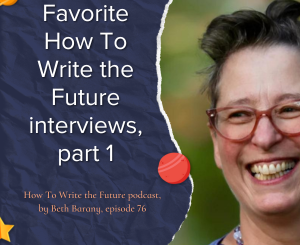How to Sell to Libraries – Top 10 Strategies for Independent Authors and Publishers
 Welcome to the Monday series on Resources for Indie Authors. This week I feature an guest post from Dana Lynn Smith, book marketing coach and author. Thanks Dana!
Welcome to the Monday series on Resources for Indie Authors. This week I feature an guest post from Dana Lynn Smith, book marketing coach and author. Thanks Dana!
All resources I use and cull from my life as an Independent Publishing Consultant and Book Coach, published author, and indie author in fiction! I’ve used some of these ideas to get featured in my local library.
^*^
How to Sell to Libraries – Top 10 Strategies for Independent Authors and Publishers
by Dana Lynn Smith
America’s 123,000 libraries purchase nearly $2 billion worth of books annually, according to statistics from the American Library Association and the Book Industry Study Group. Nonfiction books are especially well suited to library sales. To sell fiction to libraries, it’s helpful to have reviews in journals, book awards, or a strong local tie-in, such as a novel being set in the region.
Here are ten tips on how to sell to libraries:
1. Publish a library-friendly book. Library books take a lot of abuse, so libraries prefer books that are sturdy. However, given the choice between a hardcover and paperback edition, they may choose the paperback because it’s less expensive. Libraries generally will not purchase books with spiral or other nontraditional binding, and they don’t like books with “fill-in-the-blank” pages. Nonfiction books should have a good index and preferably a bibliography. Librarians also prefer to purchase books that are cataloged using CIP (cataloging-in-publication) data.
2. Get your book reviewed in a library journal. Library purchasing decisions are based largely on reviews in the major journals. It’s impossible for librarians to keep up with the huge volume of books being published, and they value the screening process that the journals provide. Eligibility and submission instructions vary by publication, so read the requirements carefully. Unfortunately, the journals can review only a small percentage of the books submitted to them. If you aren’t able to get reviewed in major journals, play up your other reviews in your marketing materials.
3. Make sure your book is available through major library wholesalers such as Baker & Taylor and Ingram. The majority of library book purchases are made through wholesalers, and some libraries won’t order directly from small publishers.
4. Apply to work with a library distributor such as Quality Books or Unique Books, if you have a nonfiction book to sell to libraries.
5. Solicit testimonials from librarians to add to your marketing materials, and play up any awards the book has won.
6. Contact libraries in your area to inquire about programs for local authors, and contact libraries in towns you visit. Let the library know about your events or media coverage in the area, such as book signings, radio interviews, or newspaper feature stories.
7. Look into speaking opportunities at libraries, like lectures and readings. In some cases you can sell copies of your book at your event or even get paid a speaking fee. Sometimes these events are organized by the “friends of the library” or other similar volunteer groups.
8. Send direct mail to libraries, either on your own or through co-operative mailings. Address mail to the Collection Development Librarian for your subject area, and include a flyer with book details and a list of wholesalers and distributors that carry your book.
9. Consider donating a sample copy of your book to a few top library systems, to encourage purchases for branch libraries.
10. Exhibit at library tradeshows through co-operative exhibit programs such as those offered through the Independent Book Publishers Association, Combined Book Exhibit, and other organizations to sell your book to libraries.
Excerpted from The Savvy Book Marketer’s Guide to Selling Your Book to Libraries by Dana Lynn Smith. For more book marketing tips, follow BookMarketer on Twitter and get Dana’s free Top Book Marketing Tips ebook when you visit her book marketing blog.







I’ve been reading along for a while now. I just wanted to drop you a comment to say keep up the good work.
Thank you Ben! I appreciate that you stopped by and left a comment.